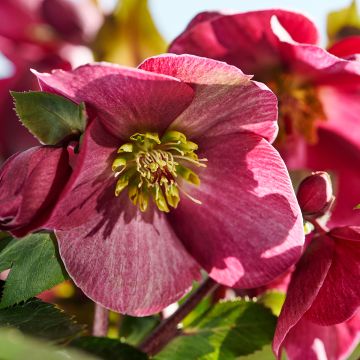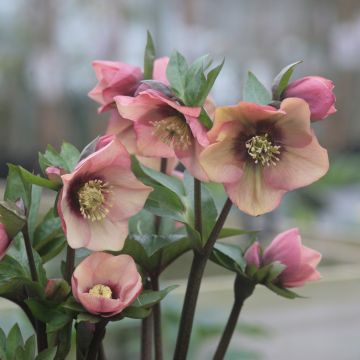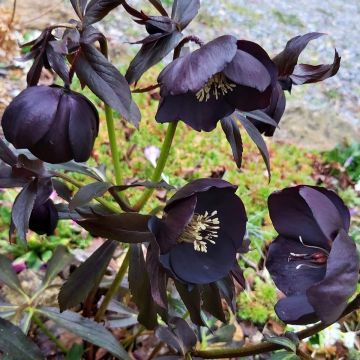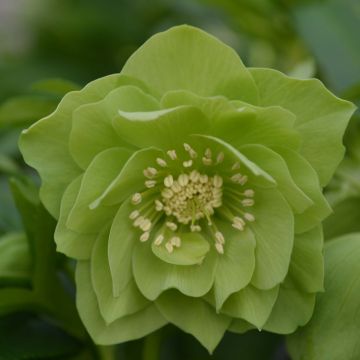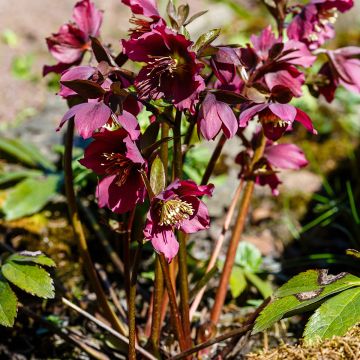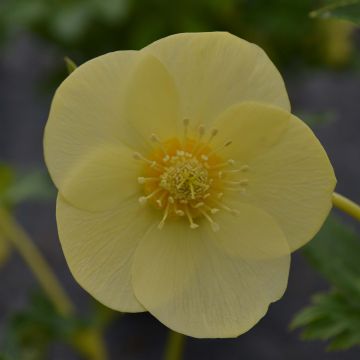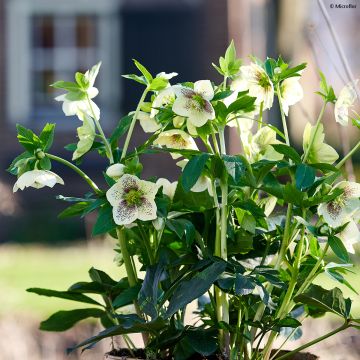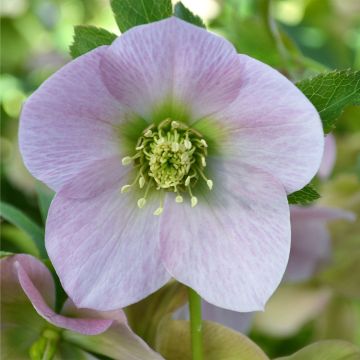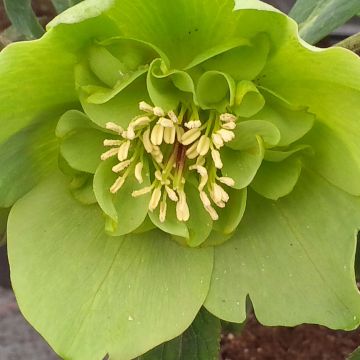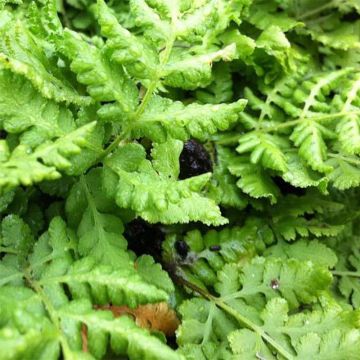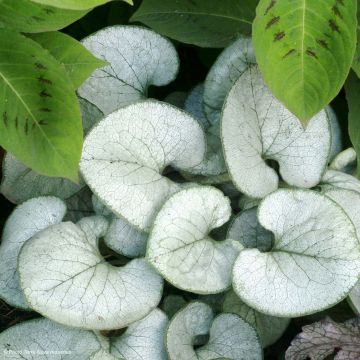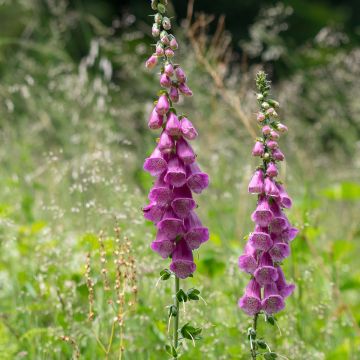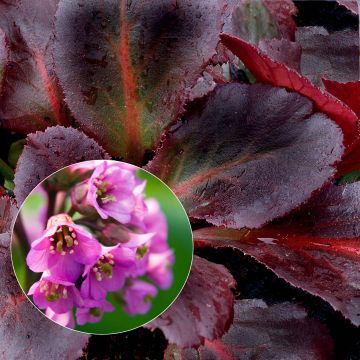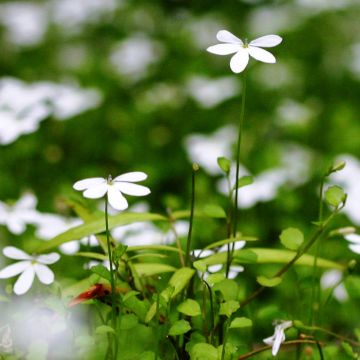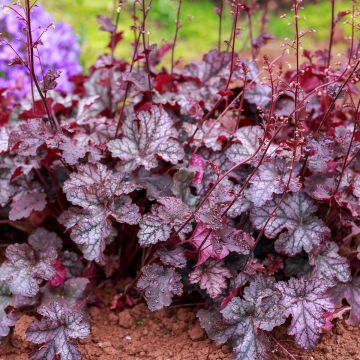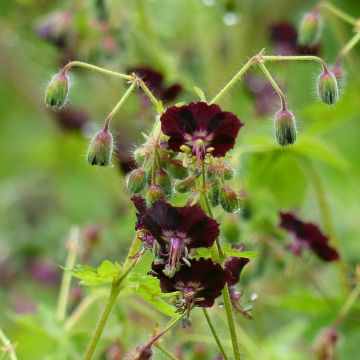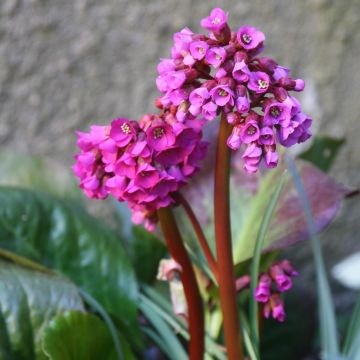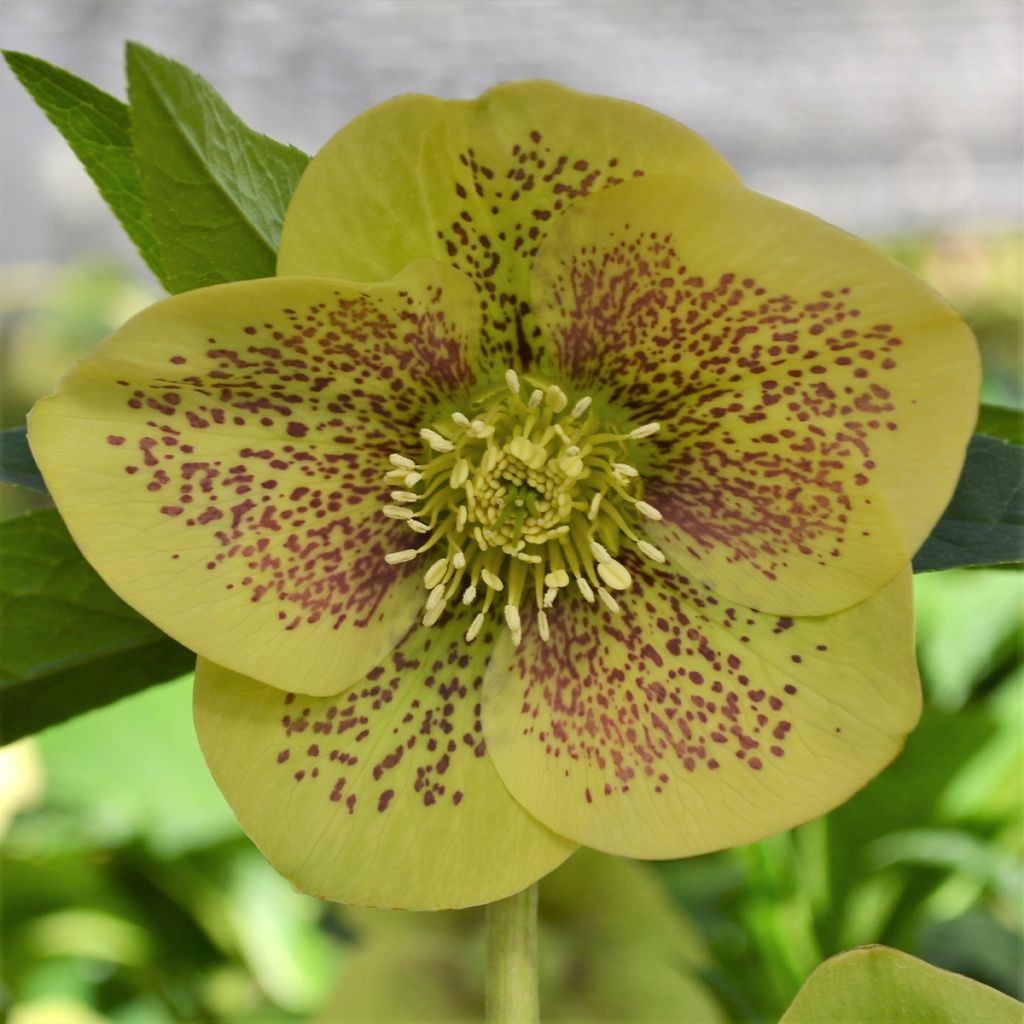

Helleborus hybridus ViV Serafina
Helleborus hybridus ViV Serafina
Helleborus x hybridus ViV® Serafina
Lenten Rose, Oriental Hellebore
The recovery is starting off with a very beautiful bloom, but the flowers match the visual you provide for the Antonella variety. I thought it might be a labeling error, but I saw on the website vivheleborus.com that the visual given for Sérafina was exactly like the one you provided me. Could there be a visual mix-up between Sérafina and Antonella on your website?
jean Bernard, 29/01/2024
Special offer!
Receive a €20 voucher for any order over €90 (excluding delivery costs, credit notes, and plastic-free options)!
1- Add your favorite plants to your cart.
2- Once you have reached €90, confirm your order (you can even choose the delivery date!).
3- As soon as your order is shipped, you will receive an email containing your voucher code, valid for 3 months (90 days).
Your voucher is unique and can only be used once, for any order with a minimum value of €20, excluding delivery costs.
Can be combined with other current offers, non-divisible and non-refundable.
Why not try an alternative variety in stock?
View all →This plant carries a 12 months recovery warranty
More information
We guarantee the quality of our plants for a full growing cycle, and will replace at our expense any plant that fails to recover under normal climatic and planting conditions.
Would this plant suit my garden?
Set up your Plantfit profile →
Description
Oriental Hellebore ViV Serafina is a recognizable variety with distinctly bicoloured flowering, yellow spotted with red. Flowering for several weeks from November, this Lenten Rose produces simple, but original flowers with well-opened petals, whose contrasting colour is further enhanced by a yellow stamen centre. It is a robust and hardy perennial that mainly needs moisture and protection from scorching sunlight, and can thrive perfectly in shade. Its evergreen foliage forms a compact tuft, which will create beautiful flower beds in the garden, and it can easily be grown in a pot.
The ViV Hellebores are varieties resulting from in-vitro multiplication. Unlike varieties resulting from seed, hellebores produced by in-vitro guarantee a rigorously identical flowering to the variety from which they originate. They have the same genetic characteristics as the mother plant, are more vigorous, and develop uniformly.
Hellebore Serafina belongs to the Ranunculaceae family, which includes about sixty genera and around 2500 species, most of which are poisonous. The species Helleborus orientalis is native to Greece, Turkey, and the centre and east of the Caucasus. It is a perennial plant that hybridizes very easily with other species to produce hybrids with very varied colours and forms, so much so that these hybrids are rarely given variety names. They are instead distinguished by their shape and colour characteristics. The Oriental Hellebore is a hardy plant that tolerates temperatures down to -15°C (5°F), naturally growing in forests, thickets, and clearings up to 2,000 m (6.600 ft) altitude.
This variety forms a tuft 35 to 45 cm (14 to 18in) high and about thirty wide. Its vegetation consists of palmate, slightly toothed, dark green and shiny, evergreen basal leaves which actually only live for 8 months and are regularly replaced by new leaves. Serafina begins flowering in November and continues for long weeks, until December. Its large single flowers consist of 5 almost circular petals, forming a well-opened corolla, with a yellow stamen centre. This flowering is bicoloured and in a very marked manner: each petal carries a large reddish central spot, bordered by a wide yellow margin, thus creating a very strong and surprising contrast. These large flowers are borne on long peduncles standing out clearly above the dark foliage. As with most varieties, the corollas are arranged in a vertical plane, or even slightly inclined downwards, allowing water to slide off like an umbrella, avoiding accumulation in the centre which could cause rotting. The Hellebore does not like to be moved once established, with young plants sometimes taking time to flower. So be sure to choose their location carefully.
With its spectacular flowers, this Hellebore will enchant the late season in your garden. Its flowering is staggered compared to most other plants and will allow you to create an attractive semi-shaded flower bed all year round. To bring life to winter, you can count on many other varieties of Hellebores with later flowering, white, green, pink, purple... The decorative fruits of certain species such as European Spindle (Euonymus europaeus) in pink and orange bishop's caps will also be appreciated at this time. You can plant it in the background due to its size, and its flamboyant autumn colours will have a great effect in a flower bed. At its base, compact shrubs like Sarcococcas will bring the magic of their deliciously scented white winter flowering and allow you to create vegetation layers to highlight your Hellebores.
Report an error about the product description
Helleborus hybridus ViV Serafina in pictures
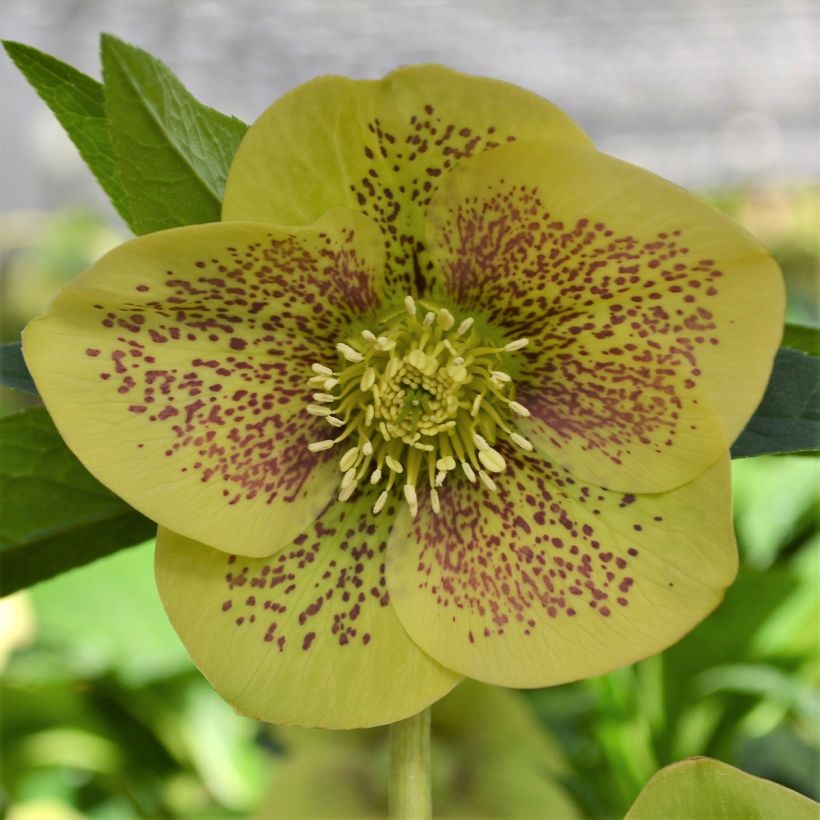

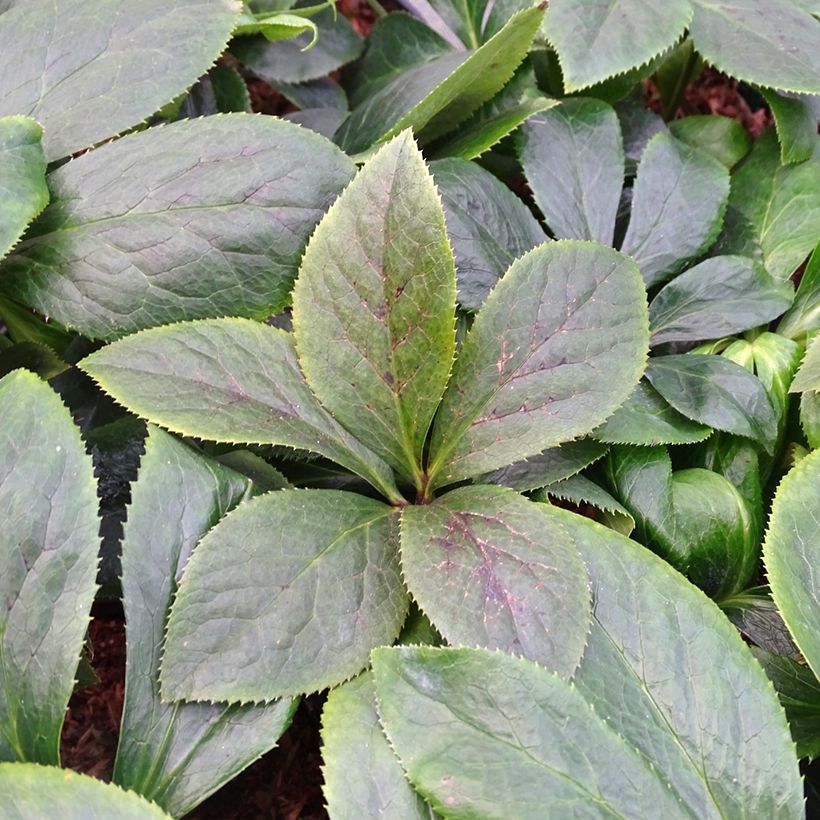

Flowering
Foliage
Plant habit
Safety measures
Botanical data
Helleborus
x hybridus
ViV® Serafina
Ranunculaceae
Lenten Rose, Oriental Hellebore
Cultivar or hybrid
ingestion
Cette plante est toxique si elle est ingérée volontairement ou involontairement.
Ne la plantez pas là où de jeunes enfants peuvent évoluer, et lavez-vous les mains après l'avoir manipulée.
Pensez à conserver l'étiquette de la plante, à la photographier ou à noter son nom, afin de faciliter le travail des professionnels de santé.
Davantage d'informations sur https://plantes-risque.info
Planting and care
Oriental Hellebore Serafina grows in any neutral to moderately chalky soil, even slightly acidic, rich, light or clayey, in partial or light shade, sheltered from cold and dominant winds. Avoid direct sunlight during the hottest hours. This perennial can be planted from early autumn to spring. It thrives in deeply worked soil mixed with organic matter. To feed it, use bone meal or another organic fertilizer. Water the plants well then add a layer of mulch 2 to 5 cm (1 to 2in) thick. Regularly remove faded leaves to improve flowering. Ensure a planting distance of 30 to 40 cm (12 to 16in) between each plant to promote their development. The Hellebore does not tolerate stagnant water, as it may cause rot.
The crowns should not completely dry out in summer. Hellebores can be affected by a disease transmitted by aphids, called black spot. Remove any stained leaves when the flower buds appear. Remove faded flowers after the seeds have fallen. They can also suffer from grey rot or die from collar rot often due to poor growing conditions, in overly wet situations.
On a balcony or terrace, plant this perennial in a pot 4 to 5 times larger as it needs space to develop its root system. This hardy Hellebore can withstand temperatures down to -15°C, or even lower, allowing it to adapt to almost all regions.
Planting period
Intended location
Care
-
, onOrder confirmed
Reply from on Promesse de fleurs
Similar products
Haven't found what you were looking for?
Hardiness is the lowest winter temperature a plant can endure without suffering serious damage or even dying. However, hardiness is affected by location (a sheltered area, such as a patio), protection (winter cover) and soil type (hardiness is improved by well-drained soil).

Photo Sharing Terms & Conditions
In order to encourage gardeners to interact and share their experiences, Promesse de fleurs offers various media enabling content to be uploaded onto its Site - in particular via the ‘Photo sharing’ module.
The User agrees to refrain from:
- Posting any content that is illegal, prejudicial, insulting, racist, inciteful to hatred, revisionist, contrary to public decency, that infringes on privacy or on the privacy rights of third parties, in particular the publicity rights of persons and goods, intellectual property rights, or the right to privacy.
- Submitting content on behalf of a third party;
- Impersonate the identity of a third party and/or publish any personal information about a third party;
In general, the User undertakes to refrain from any unethical behaviour.
All Content (in particular text, comments, files, images, photos, videos, creative works, etc.), which may be subject to property or intellectual property rights, image or other private rights, shall remain the property of the User, subject to the limited rights granted by the terms of the licence granted by Promesse de fleurs as stated below. Users are at liberty to publish or not to publish such Content on the Site, notably via the ‘Photo Sharing’ facility, and accept that this Content shall be made public and freely accessible, notably on the Internet.
Users further acknowledge, undertake to have ,and guarantee that they hold all necessary rights and permissions to publish such material on the Site, in particular with regard to the legislation in force pertaining to any privacy, property, intellectual property, image, or contractual rights, or rights of any other nature. By publishing such Content on the Site, Users acknowledge accepting full liability as publishers of the Content within the meaning of the law, and grant Promesse de fleurs, free of charge, an inclusive, worldwide licence for the said Content for the entire duration of its publication, including all reproduction, representation, up/downloading, displaying, performing, transmission, and storage rights.
Users also grant permission for their name to be linked to the Content and accept that this link may not always be made available.
By engaging in posting material, Users consent to their Content becoming automatically accessible on the Internet, in particular on other sites and/or blogs and/or web pages of the Promesse de fleurs site, including in particular social pages and the Promesse de fleurs catalogue.
Users may secure the removal of entrusted content free of charge by issuing a simple request via our contact form.
The flowering period indicated on our website applies to countries and regions located in USDA zone 8 (France, the United Kingdom, Ireland, the Netherlands, etc.)
It will vary according to where you live:
- In zones 9 to 10 (Italy, Spain, Greece, etc.), flowering will occur about 2 to 4 weeks earlier.
- In zones 6 to 7 (Germany, Poland, Slovenia, and lower mountainous regions), flowering will be delayed by 2 to 3 weeks.
- In zone 5 (Central Europe, Scandinavia), blooming will be delayed by 3 to 5 weeks.
In temperate climates, pruning of spring-flowering shrubs (forsythia, spireas, etc.) should be done just after flowering.
Pruning of summer-flowering shrubs (Indian Lilac, Perovskia, etc.) can be done in winter or spring.
In cold regions as well as with frost-sensitive plants, avoid pruning too early when severe frosts may still occur.
The planting period indicated on our website applies to countries and regions located in USDA zone 8 (France, United Kingdom, Ireland, Netherlands).
It will vary according to where you live:
- In Mediterranean zones (Marseille, Madrid, Milan, etc.), autumn and winter are the best planting periods.
- In continental zones (Strasbourg, Munich, Vienna, etc.), delay planting by 2 to 3 weeks in spring and bring it forward by 2 to 4 weeks in autumn.
- In mountainous regions (the Alps, Pyrenees, Carpathians, etc.), it is best to plant in late spring (May-June) or late summer (August-September).
The harvesting period indicated on our website applies to countries and regions in USDA zone 8 (France, England, Ireland, the Netherlands).
In colder areas (Scandinavia, Poland, Austria...) fruit and vegetable harvests are likely to be delayed by 3-4 weeks.
In warmer areas (Italy, Spain, Greece, etc.), harvesting will probably take place earlier, depending on weather conditions.
The sowing periods indicated on our website apply to countries and regions within USDA Zone 8 (France, UK, Ireland, Netherlands).
In colder areas (Scandinavia, Poland, Austria...), delay any outdoor sowing by 3-4 weeks, or sow under glass.
In warmer climes (Italy, Spain, Greece, etc.), bring outdoor sowing forward by a few weeks.






























